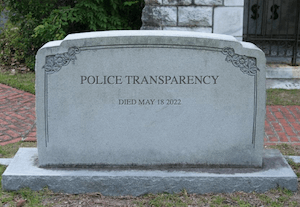28/22 NEWS (WBRE/WYOU) — Colorectal cancer is increasing at an alarming rate for not just people over the age of 50, but also young adults.
Inside Honesdale High School in Wayne County, you can find 57-year-old Daniel Davidson teaching Latin and English.
Teaching is one of his passions. Another one is being an advocate for colorectal cancer awareness after getting unsettling news last year.
If you get SNAP benefits in Pennsylvania, you’re urged to change PINs immediately
“I received a positive diagnosis for cancer.”
Having an active lifestyle and no serious issues, Davidson says he pushed off getting a colonoscopy that he was supposed to get when turning 50. When he finally scheduled one, he didn’t believe what he was hearing.
“There was kind of a shock, disbelief, and this is one thing, I felt perfectly fine. I said over and over, ‘I don’t need a colonoscopy.’”
Davidson’s gastroenterologist, Dr. Rutta, at the Scranton Endoscopy Center, says he was able to successfully remove Davidson’s cancer.
Dr. Rutta explains in recent years, a shift has been made for patients with colon cancer, as 13 percent of those diagnosed are now under the age of 50. Many of those cases in NEPA.
“Why did that occur? No one knows exactly. But again it’s thought to be related to a lack of exercise, processed foods, more obesity in the general population.”
While getting screened is the most important step you can take to prevent colon cancer, Dr. Rutta says you can also make simple lifestyle changes, such as eating healthy and cutting out red meat, increasing daily physical activity, avoiding alcohol and smoking, and knowing your family’s health history.
Now with screening recommended at 45 years old, Davidson says he hopes people take it seriously.
“I have four brothers and I have four sons and so now my campaign is to ask all of them, if you haven’t already had a colonoscopy, get one.”
“At the end of the day, it’s nothing compared to not knowing what’s going on inside of your colon.”
Most people diagnosed with colorectal cancer don’t show any symptoms. But if you notice any changes in your body, such as abdominal pain, weight loss, and abnormal bowel habits, you should contact your doctor.
